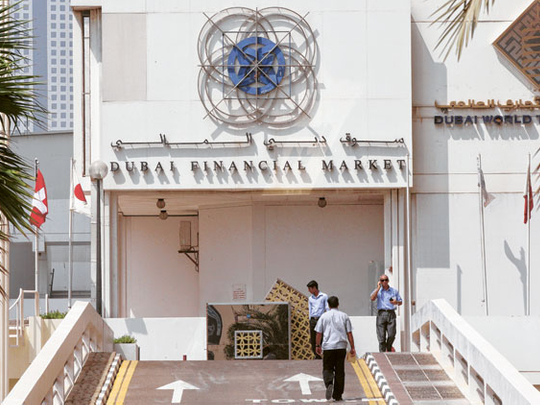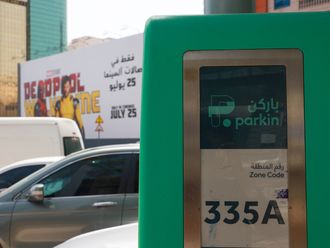
Dubai: Shares in Dubai and Abu Dhabi fell sharply on Thursday morning after the UAE and Qatar missed out on an upgrade to emerging markets status in MSCI’s latest classification review.
Local investors cashed in on blue chip stocks, including Emaar and Dana Gas, which would have benefited most from an upgrade. The Dubai Financial Market (DFM) General Index lost 1.73 per cent to 1,361.11 per cent to at 10.25am UAE time while Abu Dhabi’s bourse was down 0.75 per cent to 2,424.42.
It is the third time the UAE and Qatar have missed out on an upgrade to emerging markets status after being previously denied in 2009 and 2010. Both countries, however, remain under review for an upgrade next June, index compiler MSCI said in a statement posted on its website.
“An upgrade would have acted as a strong catalyst in terms of decorrelating from international markets. Unfortunately, that did not happen the UAE and Qatar will continue to highly correlate with regional and European markets,” said Marwan Shurrab, vice-president and chief trader at Gulfmena Investments.
“The MSCI decision will be viewed as disappointing news, especially among retail investors who were building positions ahead of an expected rally. We have seen a short-lived rebound over the last two weeks, particularly in major blue chip stocks. However, they are the same blue chips that will now see some selling pressure on low turnover,” he added.
Earlier this year, MSCI postponed its verdict for six months to allow investors to get used to a new settlement system known as delivery versus payment (DvP). MSCI said the feedback received from foreign institutional investors over the UAE’s DvP system was positive in terms of its introduction and the model’s “seamless functioning”.
However, MSCI added that “investors continue to stress significant concerns over the effectiveness of the new framework to fully ensure the safeguarding of their assets under certain circumstances, particularly for failed trades where a forced sale of assets, without the owner’s consent, remains a possibility”.
DvP is a securities industry procedure in which payment for a security must be made when the security is delivered. Under the previous dual-account system, the payment is made to a bank first, which then pays for the security. MSCI cited the old system as a reason for keeping the UAE and Qatar as frontier markets a year ago.
MSCI did not express any particular concern over foreign ownership limits in the UAE, which recently introduced a companies’ law that allows the UAE Cabinet to issue a resolution permitting firms in certain sectors to increase the amount of capital available to overseas investors. However, the index compiler did acknowledge the matter as a concern in Qatar, which only permits foreign ownership limits of 25 per cent.
“With respect to Qatar, stringent foreign ownership limits, including on large companies, remain a major concern to international institutional investors, as the availability of shares to them is not only limited but also potentially very volatile,” MSCI said in a statement.
“No change was implemented or announced on this matter by the Qatari regulators during the review period. Any change to the status of the MSCI Qatar index is conditional upon a meaningful increase of foreign ownership limit levels applied to Qatari companies resulting in increased foreign room,” the statement added.












